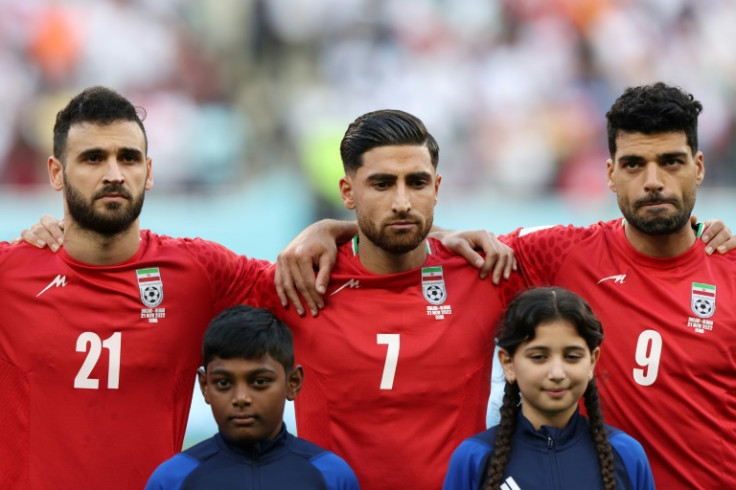Iran's World Cup team caught in dilemma over protests at home
Having to take on Iran's political nemesis, the United States, has only intensified the spotlight going into Tuesday's match.

With their country riven by unrest, Iran's football team are trapped in an impossible position at the World Cup as they head into a decisive clash with the United States.
They are criticised at home, where the security forces are battling protesters, whether they voice support for demonstrators or they stay quiet.
The Iranians have insisted since the start of the competition that they are in Qatar to "fight for the people and bring them joy".
But Carlos Queiroz's team are torn between conflicting interests as the Islamic republic's government confronts widespread demonstrations sparked by the death in custody of Mahsa Amini after she was arrested for allegedly violating the strict dress code for women.
The Norway-based Iran Human Rights group says more than 410 people have been killed in a government crackdown.
The unrest at home has put the Iranian players under intense pressure.
"You don't even imagine behind the scenes what these kids have been living in the last few days, just because they want to express themselves as footballers," Portuguese coach Queiroz said after Iran lost their first game against England 6-2.
But after beating Wales 2-0 in the second match, the team are back in contention for a place in the last 16.
Having to take on Iran's political nemesis, the United States, has only intensified the spotlight going into Tuesday's match.
Before the World Cup kicked off, Iranian players earned social media plaudits for refusing to sing the national anthem or to celebrate goals after Amini's September 16 death.
But the tone changed after Queiroz and his players met President Ebrahim Raisi before flying to Qatar.
"Team Melli", as the national side is known, has traditionally been a unifying force in the football-mad country. Now it is a symbol of the divisions.
Shouts of "freedom" rang out from Iranians in the stadium when Iran took on England. They also shouted the name of Ali Karimi, the Bayern Munich player who has become a government critic.
But players such as Mehdi Torabi and Vahid Amiri are considered government supporters, and insults were also hurled from the stands.
Before the England game, the players stayed silent during the national anthem. Against Wales, they sang half-heartedly.
The government seized on the victory achieved with injury time goals. Iran's supreme leader, Ayatollah Ali Khamenei, said the players had made "the Iranian nation happy".
Jean-Baptiste Guegan, a French specialist on politics in sport, said the players are treading a fine line as they risk sanctions on their return from the World Cup.
"If the players show their support for the revolt, even silently, they risk being reprimanded," he said.
"On the other hand, there are activists and people involved in the struggle, who are risking their lives in Iran and want to see them (the team) be a symbol."
The team could also face suspension by FIFA for making political gestures.
"It is the players' dilemma," said Guegan.
"Whatever they do they will suffer the consequences. There is a real risk for them if the situation worsens in Iran."
Last week, Iranian-Kurdish former international player Voria Ghafouri, was arrested for spreading "propaganda" against the state. He was eventually freed on bail on Monday.
Iranian football legend Ali Daei, who also played at Bayern Munich, said he had been "threatened" after expressing support for demonstrators.
© Copyright AFP 2025. All rights reserved.





















